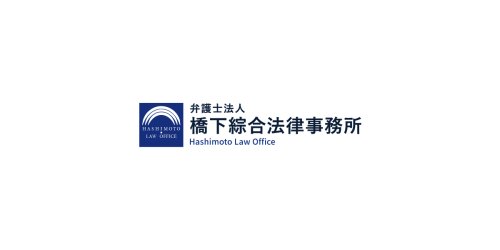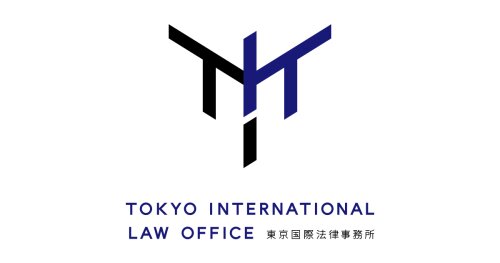Best Natural Resources Lawyers in Japan
Share your needs with us, get contacted by law firms.
Free. Takes 2 min.
Or refine your search by selecting a city:
List of the best lawyers in Japan
About Natural Resources Law in Japan
Japan is a nation richly endowed with diverse natural resources, ranging from its extensive forest areas and abundant marine life to significant mineral deposits. However, due to its geographical makeup and manufacturing-heavy economy, the country heavily depends on imports for raw materials such as fossil fuels. This dependence necessitates a well-structured legal framework to manage and sustain its natural resources effectively. Natural Resources Law in Japan encompasses a wide range of regulations and policies that address the conservation, extraction, commercialization, and interstate usage of these resources.
Why You May Need a Lawyer
There are several situations where you might require legal assistance in the field of Natural Resources in Japan:
- Resource Extraction and Usage: Legal advice is crucial when dealing with permits, compliance with local laws, and sustainability practices if you are involved in activities like mining, fishing, or forestry.
- Environmental Regulation Compliance: Legal experts can help navigate complex regulations and environmental impact assessments to avoid penalties.
- Litigation and Dispute Resolution: If conflicts arise regarding resource exploitation or rights, legal representation becomes essential to mediate or litigate such disputes.
- Commercial Transactions: Legal counsel is beneficial for drafting and negotiating contracts related to the sale, purchase, or leasing of natural resources.
Local Laws Overview
Several key local laws govern Natural Resources in Japan:
- Basic Act on Biodiversity: Aims to protect and sustainably utilize biodiversity, impacting industries like agriculture and fisheries.
- Mining Act: Regulates mineral extraction, including licensing and operational requirements.
- Fisheries Act: Governs fishing activities, ensuring sustainable practices and the protection of marine biodiversity.
- Forest Act: Manages forest resources emphasizing conservation and sustainable timber use.
- Water Pollution Control Law: Focuses on managing water quality, ensuring safe and sustainable water use.
Frequently Asked Questions
What are the main natural resources found in Japan?
Japan's chief natural resources include marine resources, such as fish and seaweed, as well as timber from its forests. The country also has small deposits of minerals and some water resources.
How is mining regulated in Japan?
Mining is regulated under the Mining Act, which requires obtaining a mining license. The act ensures that mining activities are conducted sustainably and responsibly, with consideration for environmental impacts.
What are the regulations for fishing in Japan?
The Fisheries Act governs fishing activities, aiming to achieve sustainable use and management of marine resources. It involves licensing systems, quotas, and conservation measures to prevent overfishing.
How does Japan address environmental impacts from natural resource exploitation?
Japan implements various laws and regulations to mitigate environmental impacts, including requirements for Environmental Impact Assessments (EIAs) and strict adherence to environmental standards.
Can foreign individuals or companies exploit natural resources in Japan?
Foreign entities can engage in resource exploitation but must comply with Japan's legal framework, including applicable licenses and environmental regulations.
What legal protections exist for forest resources in Japan?
The Forest Act provides frameworks for conservation and sustainable timber harvesting, emphasizing the preservation of Japan's forest ecosystems.
How are disputes related to natural resources resolved?
Disputes can be resolved through negotiation, arbitration, and litigation, with legal counsel generally advisable to navigate complex legal proceedings.
What roles do local governments play in natural resource management in Japan?
Local governments enforce regulations and implement policies related to natural resources, working alongside national authorities to ensure sustainable development and conservation efforts.
What steps are involved in obtaining a natural resource exploitation permit?
The process generally includes compliance checks, environmental assessments, and adherence to specific industry regulations, with each sector having unique requirements.
Are there any incentives for sustainable practices in natural resource industries?
Yes, Japan offers various incentives, including tax breaks and grants, to encourage environmentally-friendly and sustainable practices within the industry sectors.
Additional Resources
Here are some resources and organizations that can be helpful for those seeking legal advice on natural resources in Japan:
- Ministry of the Environment, Japan: Offers information on environmental regulations and conservation measures.
- Japan Forestry Agency: Provides guidelines and policies related to forest management and conservation.
- Japan Oil, Gas and Metals National Corporation (JOGMEC): Offers insights and support related to mineral resources.
- FEPC (Federation of Electric Power Companies of Japan): Provides information related to energy resources and regulation.
- Japan External Trade Organization (JETRO): Assists foreign businesses with understanding the regulatory environment in Japan.
Next Steps
If you need legal assistance in the area of Natural Resources in Japan, consider the following steps:
- Identify Your Needs: Clearly outline the type of legal help you need, whether it is compliance, dispute resolution, or another issue.
- Research Legal Experts: Look for lawyers or law firms specializing in natural resources and environmental law in Japan.
- Consult with Professionals: Arrange consultations to discuss your situation, exploring potential strategies and solutions.
- Prepare Documentation: Gather all relevant documents and evidence related to your case or needs to present to your legal advisor.
- Follow Through: Work collaboratively with your legal counsel to address your challenges, ensuring adherence to all legal responsibilities.
Lawzana helps you find the best lawyers and law firms in Japan through a curated and pre-screened list of qualified legal professionals. Our platform offers rankings and detailed profiles of attorneys and law firms, allowing you to compare based on practice areas, including Natural Resources, experience, and client feedback.
Each profile includes a description of the firm's areas of practice, client reviews, team members and partners, year of establishment, spoken languages, office locations, contact information, social media presence, and any published articles or resources. Most firms on our platform speak English and are experienced in both local and international legal matters.
Get a quote from top-rated law firms in Japan — quickly, securely, and without unnecessary hassle.
Disclaimer:
The information provided on this page is for general informational purposes only and does not constitute legal advice. While we strive to ensure the accuracy and relevance of the content, legal information may change over time, and interpretations of the law can vary. You should always consult with a qualified legal professional for advice specific to your situation.
We disclaim all liability for actions taken or not taken based on the content of this page. If you believe any information is incorrect or outdated, please contact us, and we will review and update it where appropriate.
Browse natural resources law firms by city in Japan
Refine your search by selecting a city.

















